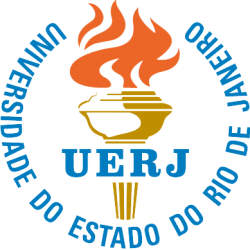“She said the mystery of life isn’t a problem to solve, but a reality to experience. So I quoted the First Law of Mentat at her: ‘A process cannot be understood by stopping it. Understanding must move with the flow of the process, must join it and flow with it.”
Herbert, Frank. Dune
I was born in the mountains of Minas Gerais, Brazil, and raised in Itatiaia, in the mountains of Rio de Janeiro. My early scientific knowledge was gifted to me by my parents and godfather, despite their lack of formal education. My spirituality was greatly influenced by the teachings of my grandmother, Iracema, a spiritual child of Nhá Chica.
Today, my research is primarily rooted in exploring the unification of (loop) quantum gravity and the standard model of particle physics through the interconnections between lattice gauge theory, topological quantum computing, quasicrystals, and spin foams. My goal is to open-source the ‘code’ of reality, a pursuit that aims to unveil the foundational codes governing the universe. This fascination is a natural progression from my Ph.D. work in physics, where I explored an advanced aspect of the confinement problem in gauge theories using the superfield formalism. My publications during this period provide a rigorous exploration of these themes, which continue to fuel my current projects. But to understand how I reached this point, we have to travel back to my early academic journey.
In 1996, I began my graduate studies in Electrical Engineering at Sao Paulo State University (UNESP). Access to the university’s laboratories exposed me to the internet and Unix/Linux systems early on. I chose to specialize in Computer Engineering, learning algorithms and programming languages such as C, C++, Fortran, and Pascal. My final project, ‘inteliquestion,’ was a precursor to education technology, offering a platform for teachers to prepare tests and students to practice.
As a student on a scientific initiation scholarship under the supervision of Edgard Dias Batista Jr., I made significant contributions to the ARSIG-2 project. We developed algorithms to gain a better understanding of urban travel patterns, allowing for future predictions and providing solutions to urban planning issues.
In the early 2000s, I completed my master’s degree in physics under Carlos Renato Zacharias. Together, we implemented cellular automata codes to explain homeopathic dynamisation or potentisation processes. However, my final thesis was on the application of optimization methods to human eye optics and the development of ophthalmic lenses.
Between the early 2000s and the early 2010s, I was part of the i-Motirõ collective and helped establish the i-Motirõ association. The collective has been working since 2005 on a range of actions including digital culture, technological re-appropriation, digital inclusion, open software, electronic art, ecology, self-management, free radio, and media education in Rio de Janeiro and Espírito Santo.

In 2005, we managed the IP:// (Public Interface), a self-managed space hosting social movements, activists, and free technology research. We supported the first cultural points of Rio de Janeiro state and organized various independent cultural events. From 2006, we took on the Ministry of Culture’s Digital Culture Action in Rio de Janeiro and Espírito Santo, providing technical support and training to culture points on digital tools based on free software. Our work continued under the name Lab Livre Rio.
In 2008, we partnered with Circo Voador’s Digital Culture Point, carrying out our activities as Circo Digital. Alongside this, we conducted various independent digital culture and electronic art projects. In 2009, we decided to formalize the i-Motirõ collective (imotiro.org), focusing on an innovative agenda that included Internet Governance, Intellectual Property, Cultural Plurality, Constitution of Commons, Gift and Solidarity Creative Economy, Free Culture, Agroecology, Electronic and Digital Art, among others.
Today, many social movements and cultural entities across Brazil are reclaiming cultural production means through new communication and information technologies. i-Motirõ has been a key player in this wave of digital culture experimentation, conducting research, independent communication, and seeking economic and environmental alternatives since 2005. We’ve run workshops, consultations, and technical and artistic research, and established partnerships with culture points, culture hubs, and other institutions such as the Rio de Janeiro State Culture Secretariat and SESC-RJ.
During my academic pursuits, I also worked in the industry, developing software, particularly websites and platforms, for various companies. I contributed to VTEX’s CRM, and at Tecnopop and Instituto Overmundo, I helped develop and maintain the collaborative website overmundo.com.br, which focuses on Brazilian culture and the culture produced by Brazilians around the world.
On the research front, I continued my studies in theoretical physics with courses on quantum field theory at the Brazilian Center for Physical Research (CBPF) with Professor José A. Helayël. I helped with a project to record and make their classes available on YouTube.

In 2011, I began my Ph.D. with advisor Vitor E. R. Lemes, concluding in 2015 with a thesis on a supersymmetric extension of the Gribov problem in the superfield formalism. I published supporting papers in scientific journals along the way. In 2015, I received a fellowship from the Brazilian program ‘Science without Borders’ to complete a postdoc at Penn State University, which resulted in work on the problem of time in quantum gravity. Since then, I have collaborated and worked with the Quantum Gravity Research group in Los Angeles.

My publications demonstrate my multidisciplinary background.